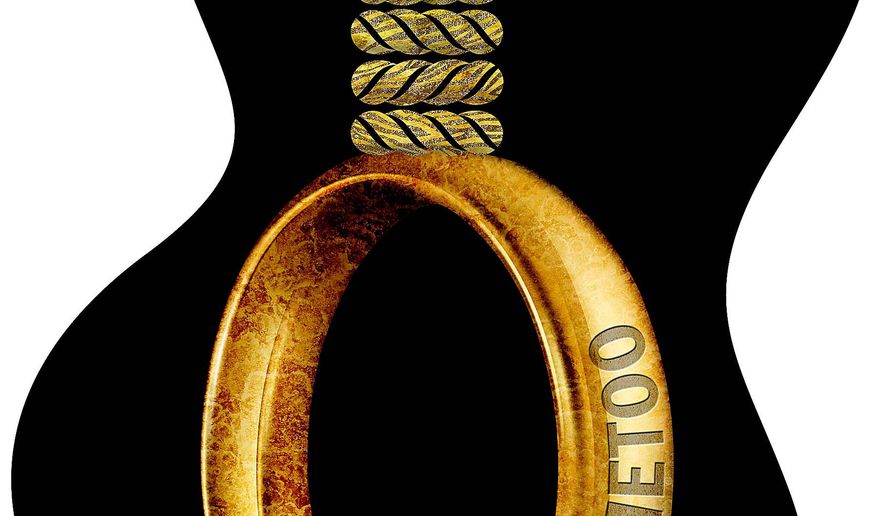OPINION:
In “The Magician’s Nephew” from “The Chronicles of Narnia” series, C.S. Lewis tells us of the young boy named Digory who is sent on a journey by Aslan to retrieve an apple from a distant garden beyond the western mountains. The boy is told not to eat the fruit but rather to simply pluck it from its branch and return it to the Lion who intends to use it to plant a tree that will provide freedom, justice and protection to Narnia forevermore.
After a long journey, Digory arrives at the garden. He does what he was told. He enters through the gate and picks the apple but, as he turns to leave, an evil witch confronts him. “You fool,” she says. “Don’t you see that one bite of the apple would give you your heart’s desire?”
Digory is tempted. There is so much he wants that is “good.” Just one bite would heal what is sick and restore what is broken around him. Just one taste of the apple would, as he sees it, set the world right.
But the boy resists. He returns the apple to Aslan. There the Lion tells him that if he would have given in to the temptation to eat the fruit at the “wrong time and in the wrong way,” that, yes, he would have had “his heart’s desire,” but, in the end he would “loathe it ever after.” “All get what they want,” said the Lion, “[but] they do not always like it.”
J.R.R. Tolkien’s “The Lord of the Rings” echoes a similar theme. You remember the poem. “One Ring to rule them all, One Ring to find them, One Ring to bring them all and in the darkness bind them.” The ring beckons to all. It tempts us to grasp its power. We see this time and time again in Tolkien’s tale. The tension between the two brothers Faramir and Boramir is but one example.
Faramir resists the ring. He refuses to let power draw him in. He knows that one evil can never truly conquer another. Boramir, however, gives in. He is consumed by the ring and grabs it, not necessarily to do evil but to “do good” and he, thereby, dies a fool’s death.
The lessons from both of these stories are clear. Both Lewis and Tolkien warned us. Doing wrong even under the banner of a “noble good” is still wrong. This is the lesson of “The Lord of the Rings.” It is the lesson that Lewis emphasizes over and over again in “The Chronicles.”
When we ignore the rule of law while at the same time extolling the “higher goodness” of our favored causes we are essentially like Tolkien’s Boramir, grasping at the Ring for but a fleeting gain, while in reality only bringing ourselves and all of Middle Earth that much closer to the bondage of all given over to the worship of power.
Doing “good” in the “wrong way and the wrong time” is never good. Some actions may appear right in the short term, but in the end they will lead us to “loathe them ever after.” Indeed, “We may get what [we] want” but we will “not always like it.”
This past week Michael Avenatti, the lawyer who rose to national prominence during the confirmation hearings for U.S. Supreme Court Justice Brett Kavanaugh was arrested and charged with domestic violence by the Los Angeles Police Deparment. In the midst of the media feeding frenzy over Justice Kavanaugh, Mr. Avenatti positioned himself as an outspoken critic of due process by suggesting that for the sake of women’s rights all claims against Justice Kavanaugh should be believed in spite of the lack of any corroborating evidence.
The presumption of innocence was an old and antiquated way of thinking that favored the traditional power structures of male dominance and white privilege. As the result, Mr. Avenatti’s name became synonymous with the argument that all women should be believed at all times regardless of the veracity their claims. After all, to disbelieve a woman was to stand against women. Empowerment was at hand. The shiny gold “ring” inscribed with #MeToo was so close you could feel its mesmerizing pull. It would do such great good. It was time to grasp it, take control and fight to end the evil of Mordor.
On Nov. 15, Michael Avenatti tweeted: “I want to be clear: I did not commit domestic violence nor have I ever committed domestic violence. I did not strike any woman nor have I ever. I did not strike my ex-wife in the face nor did I hit anyone else in the face. I am a decent man & I look forward to being exonerated.”
But surely Mr. Avenatti knows his denials are meaningless. We cannot trust him. It was he who told us we must trust the power of the ring. We must believe her.
“Be not deceived; God is not mocked: for whatsoever a man soweth, that shall he also reap.”
— St. Paul
“All get what they want , [but] they do not always like it.”
— C.S. Lewis
• Everett Piper, president of Oklahoma Wesleyan University, is the author of “Not A Day Care: The Devastating Consequences of Abandoning Truth” (Regnery 2017).




Please read our comment policy before commenting.